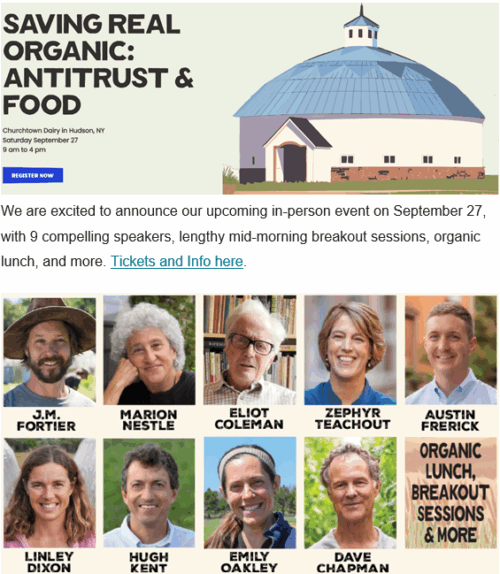Thanks to Dick Jackson, chair of environmental sciences at the UCLA School of Public Health, for sending me the latest paper arguing that food miles – the distances foods travel before they get to you – make no difference to climate change. Eating less meat, say the authors, is what counts.
Never mind the assumptions on which such estimates are based. I have no idea whether they make sense. But before jumping to interpret this paper as an argument against the value of local food, Jackson suggests that we think about the other, perhaps less tangible, benefits of local food production. He is a transportation expert so he particularly emphasizes reductions in air pollution, noise, congestion, paving, heat, and the removal of trees. On the personal side, the benefits include more physical activity, “social capital” (the conversations and other transactions between consumers and farmers), income that stays in the community, and – not least – food that is fresher and tastes better.
I’ve always thought that the real benefits of local food production were in building and preserving communities. I like having farms within easy access of where I live and I like knowing the people who produce my food. If local food doesn’t make climate change worse and maybe even helps a bit, that’s just icing on the cake. Or am I missing something here?


 Tickets and information
Tickets and information